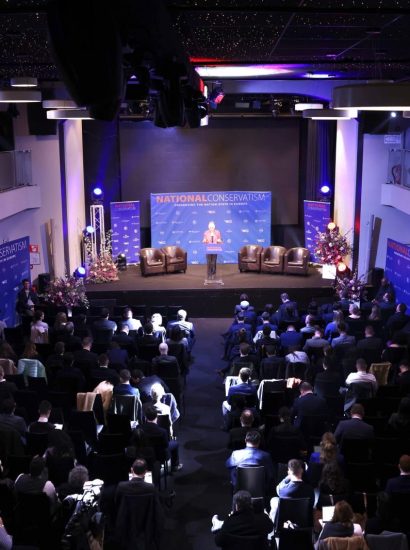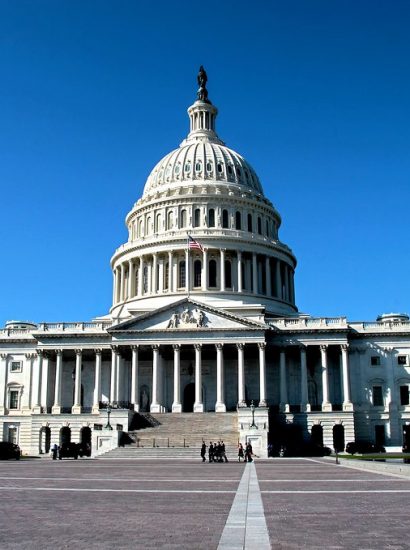Populism is one of the most used political terms in the last twenty years, and it has had diverse implications and objections. Since the crisis of 2008, populist movements have experienced a great boom, breaking into the system and challenging the political establishment.
The term populism has had different meanings during the last few years according to the interest of politicians and the media, without having an exact and clear definition for the majority public. Likewise, the term does not have a clear consensus within political science, with some authors, especially recent ones, who see it as an evil in itself, a clear threat to democracy. However, other authors see it as just another way of doing politics and that it does not pose a risk, with some of these authors even recognizing that populist movements are a manifestation of the people against the establishment.
For these reasons, the Mathias Corvinus Collegium in Brussels (from now on MCC Brussels), a prestigious think tank and private educational center, decided to organize a conference on this controversial term on Thursday, March 24, 2024. On this occasion, MCC Brussels gathered intellectuals, academics, politicians, and political analysts with different political views to discuss populism.
The session explores the real reasons for the ‘populist shift’ in European politics and asks whether populism has more to do with voters being abandoned by traditional parties than any supposed resurgence of intolerant attitudes.
Frank Furedi: “Every political party that they don’t like, it’s called populist”.
In the introduction, Frank Furedi, executive director at MCC Brussels and one of the most important sociologists of the 20th and 21st centuries, defined how he saw populism and how the media and mainstream parties used it.
“Every political party that they don’t like, it’s called populist. It’s almost like they’ve decided that it’s them.”
Furedi also stated that the association of the word populism had a directly negative connotation as if it was used to discredit the new parties that emerged and carried an alternative discourse.
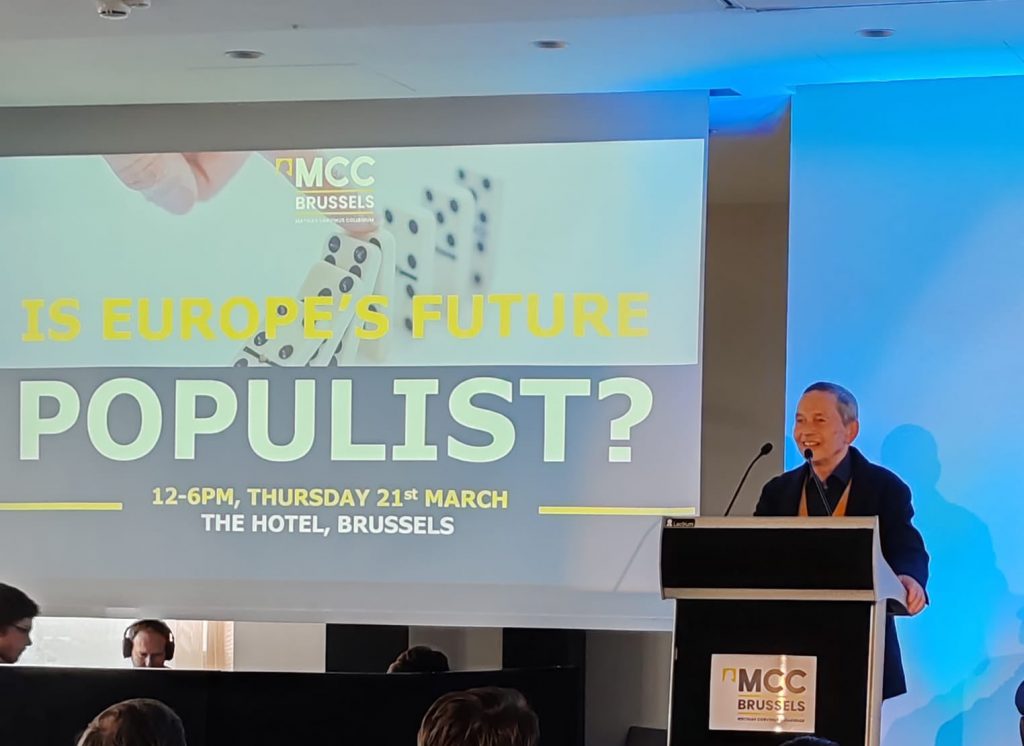
Frank Furedi at the MCC Brussels Conference: Is Europe’s Future Populist (Souce: MCC Budapest Twitter)
In addition, Furedi talked about the importance of who controls the discourse, influences the culture, and who can shape the words and decide what is what; what is bad and what is good.
“They get to decide who’s right and who’s left. They get to decide that when you talk about me, Frank Furedi, I’m automatically called far right. And I’m waiting for the day when I become the far, far right. And there is no limit to how far you can go as far as their vocabulary is concerned”.
In conclusion, Furedi talked of populist movements that give a voice to people tired of the mainstream party political agenda that does not represent them. This voice says “Enough”. A movement that takes the demands of the political people and gives them a platform so that their requirements are taken seriously and can be implemented.
Abandoned voters: Why we can’t dismiss populism
The next panel was composed of a roundtable discussion with Charlie Weimers, MEP for the Sweden Democrats; Mick Hume, author of Democracy Watch and journalist in The European Conservative; Monika Gabriela Bartoszewicz, Associate Professor at UiT, The Arctic University of Norway; and Jeremy Stubbs, journalist, author, and deputy editorial director of Causeur.
Mick Hume talked about how the European elections on June 9, 2023 may be a key opportunity to change the political scene in Europe. In this regard, he spoke about the “populist revolution”, a populist movement that wants to bring back transparency in Western democracies and bring back control.
Hume compared the current “spring” revolution to the one in 1848, when a wave of national democratic revolutions against the ancien regime swept across Europe in what was described as the springtime of nations.
“I think Spring 2024 is an opportunity for another people spring, another spring of nations in a revolt against the centralization of Brussels power.”
Finally, Hume concluded that the establishment is afraid of populist movements, as it sees them as a threat to the stability of its system. For that reason, we see headlines and persecution of populist parties, trying to denigrate and destroy them by labeling them as “far-right” and other negative connotations.
Monika Gabriela Bartoszewicz stated that democracy celebrates the people as the true sovereign, but at the same time, elections are mass phenomena that turn democracy into a beauty contest due to mass media, social networks, and other related phenomena.
Finally, Bartoszewicz said that populism is based on the lack of trust in the established elite and the idea of political representation. She asserted that political legitimacy is becoming more polarized between the establishment and populist movements. The professor suggested that populism will continue to be present, but its form may change, including the superficial adoption of the populist style by establishment politicians.
“The last point about future populism? Will it stay with us? Yes, it will. But if you think about it, consider also populist appropriation. And by this, I mean that the populist style is adopted by establishment politicians such as Georgia Meloni”.
Jeremy Stubbs simplified the political landscape using three terms: populism, wokeism, and neoliberalism. He visualized these ideas as a circle divided into three halves. Populism is defined as national populism based on distrust, destruction, deprivation, and dissent. Wokeism represents an alliance between diverse groups, united by their opposition to a common enemy, often represented as a heterosexual white male. Neoliberalism ranges from globalists to advocates of capitalism, with varied interests and agendas.

Jeremy Stubbs journalist; author, deputy editorial director, Causeur (Source: MCC Brussels Twitter)
Likewise, Stubbs talked about the fragmentation between populisms, such as what is happening in France with Marine Le Pen and her recent rival, Eric Zemmour. He talks about how Le Pen’s party has been demonized and criticized over the years, but in recent years, it has tried to moderate and be more of an establishment party, even if it remains populist in some respects. However, Reconquete (Zemmour’s party) has wanted to distance itself with a more “macabre” and anti-establishment vision.
“Mr Zemmour and Reconquest are basically saying we’re still pretty devilish, we’re still pretty diabolical, we’re still a bit, you know, odour of sulphur. We have that distinction,” concluded Jeremy Stubbs.
Charles Weimers reflected on his personal experience as a former member of the political establishment and now marginalized within his own party. Weimers states that conservatism was extinct, so when he decided to enter politics, he chose the Christian Democrats as the best option for him. However, he realized that they, too, had gone the “wrong way” with ideas such as green energy, multiculturalism, and the rejection of tough-on-crime policies.
“At the time, I was chief of staff for the Christian Democrats here in the European Parliament. I wanted to scream, »What the hell are we doing to our country?« I held my tongue. Until I couldn’t.”
In conclusion, he said that there was no conservative culture and no intellectual reference in Sweden until the Swedish Democrats understood that they were conservatives and that they had to be the standard bearer of conservatism in Sweden and fight the cultural battle. That was when they started to grow and become more relevant.
On the march? Prospects for populism across Europe
This panel was comprised of Francisco José Contrera, Professor of Philosophy of Law at the University of Seville. Ulrike Guerot, Professor of European Policy, University of Bonn; founder of European Democracy Lab. Ralph Schoellhamer, Assistant Professor in Political Science and Economics, Webster Vienna Private University, visiting fellow at MCC. Sergio Velasco, political scientist, analyst, and political commentator; founder of Filosofía Política.
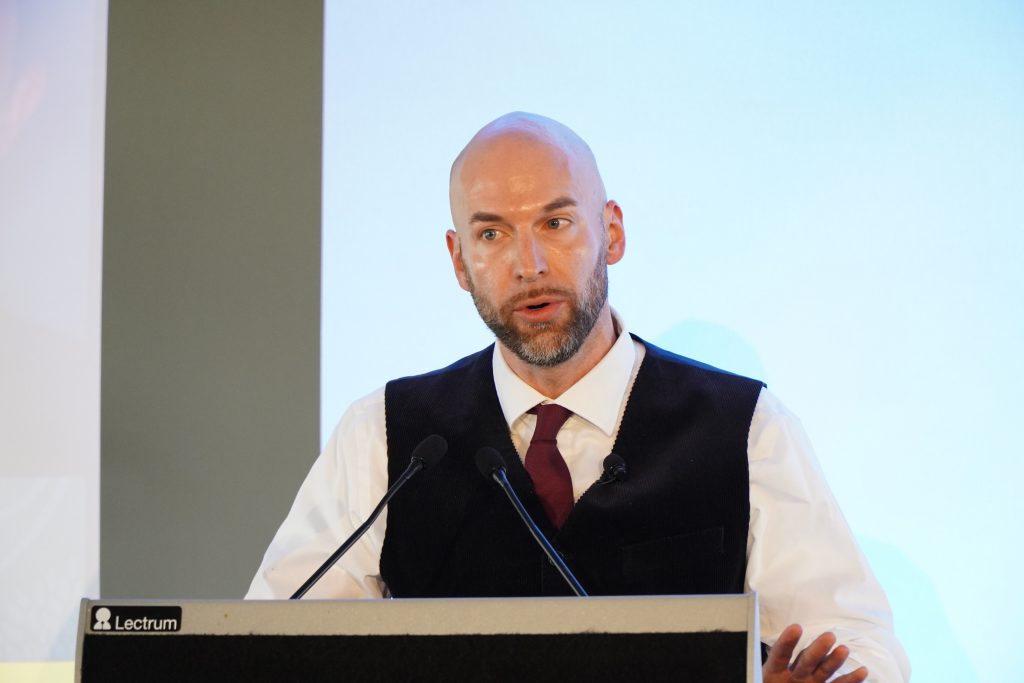
Ralph Schoellhamer Assistant Professor in Political Science and Economics, Webster Vienna Private University (Source: MCC Brussels Twitter)
Ralph Schoellhamer reflected on the importance of going back to the roots of politics and stressed the need to address the everyday concerns of the population. He highlighted that many of the positions considered populist today were considered simply common sense in the past. In fact, he does not put any intellectual as a reference, he puts his mother to ask her the things that are called “far-right” as something coherent. He pointed out:
“Many of the positions that we call populist 30, 40, 50 years ago we would just have described as common sense positions.”
He also talked about the hypocrisy in Western states, when immigration has become a problem, but the establishment does not pay proper attention to it, but in turn, to what they consider important or dangerous, they act quickly and forcefully.
“In Austria if a 12 year old girl gets gang raped by a group of migrants, nobody gets arrested. If a 16 year old girl shares some pro AfD TikTok videos in class, 3 police officers show up at her school”.
Francisco Contreras harshly criticized traditional parties for using the term populism to describe any movement that does not agree with woke culture. He stated that many parties they call populist only want to return to common sense, to true Western values, such as freedom of expression, the conception of traditional family, and life from.
“So the term populism is not to be taken seriously academically…. It is used polemically… against those who criticized the tenets of the new orthodoxy, the new secular religion, which is of course wokeness”.
Contreras also stated that the new conservative right has to combine conservative, patriotic, and liberal elements (referring to classical liberals). He concluded the importance of responsibility, as he said that the new right cannot fall into the victimizing rhetoric that the left has and be consistent with their actions. Do not be intimidated by the system or use it as an excuse for inaction.
“Well, if my life is a failure, it is not my fault. It is the fault of George Soros and it is the fault of Bill Gates. It is the fault of the World Economic Forum. This would be the right-wing version of the same externalizing, responsibility, externalizing way of thinking. And I think it’s a mistake.
Ulrike Guerot said that populism has emerged as a movement against the disconnect between European citizens and the European Union because, according to Guerot, citizens do not find themselves represented and heard by EU bureaucrats.
“Populism should be seen as an engine to transform democracy for the better. A democracy which is putting itself constantly into question in order to become more vital”.
Guerot also explained that populism is a revolutionary force in 21st century politics, comparable to liberalism in the 18th century and socialism in the 19th century.
Populism and the elites
Matthew Goodwin, Professor of Politics and International Relations at the University of Kent, and Petra Andits, Seal of Excellence Fellow at the Free University of Bozen-Bolzano, Sabine Beppler-Spahl, Chair Freiblickinstitut (Berlin), Germany correspondent at Spiked were on the panel.
Matthew Goodwin reflected on the nationalist upsurge in Europe and the United States, arguing that this phenomenon is due to four main drivers: distrust, relative deprivation, perception of immigration as destructive, and political misalignment.
“We are living through the greatest radicalization of the elite class since the 1960s.”
Goodwin stated that those responsible for the birth of the movements were precisely the elite, as the leftist movements took over everything in their path: education, institutions, think tanks, the media, academia, and everything in general. This meant that there was no room for real debate and that people who did not think like them felt left out and without a voice to represent them, which is when populist movements are crucial, as they can give a voice to those people who felt outside the system.
He also said that the ruling class has forgotten about people’s real problems, such as mass immigration, which has caused populist movements to have the importance they have, as they have neglected the problems of the citizens.
“On Monday evening, I held a debate in the heart of London on whether immigration was good or bad. And within 24 hours, we sold 700 tickets and we sold out the venue because nobody in Britain is having that conversation in the mainstream debate”.
Finally, he concluded that society needs to debate key issues such as mass immigration because these policies have disastrous consequences, and citizens need to be heard and have the tools to defend their arguments.
Sabine Beppler-Spahl discussed how the European elite has dissociated itself from the people’s reality, completely ignoring their real problems, such as security, illegal immigration, or energy policy.
“So people are saying either they can’t solve it or they don’t want to solve it.”
Beppler-Spahl argues that populist movements have played an important role in putting fundamental issues on the political agenda, such as illegal immigration or energy sovereignty, giving a voice to people who felt they had no representation with the traditional parties.
“I don’t think the populists are as bad as the elites because they have achieved some very important things. Managed to put some of the major issues back up onto the agenda.”
Petra Andits argues that the Hungarian elite is the same elite that has been in power since 1945, that does not take responsibility for the crimes committed by the communists and that has smoothly adopted the rules of the free-market economy, thus maintaining its social and cultural power.
“At an elite class which has escaped the punishment for crimes of the dictatorship, which has smoothly adopted the rules of the free-market economy.”
She also says that although the populist party has been in power for a long time, it has not been able to change this, as it is entrenched. The panelist also argues that what the Hungarian elite has done is to make Hungarians feel a sense of inferiority, of being less than the citizens of Western European countries, i.e., a complex of not being equal. She stated that although Fidesz has been ruling since 2010, they have not been able to remove this complex from the Hungarian citizenry.
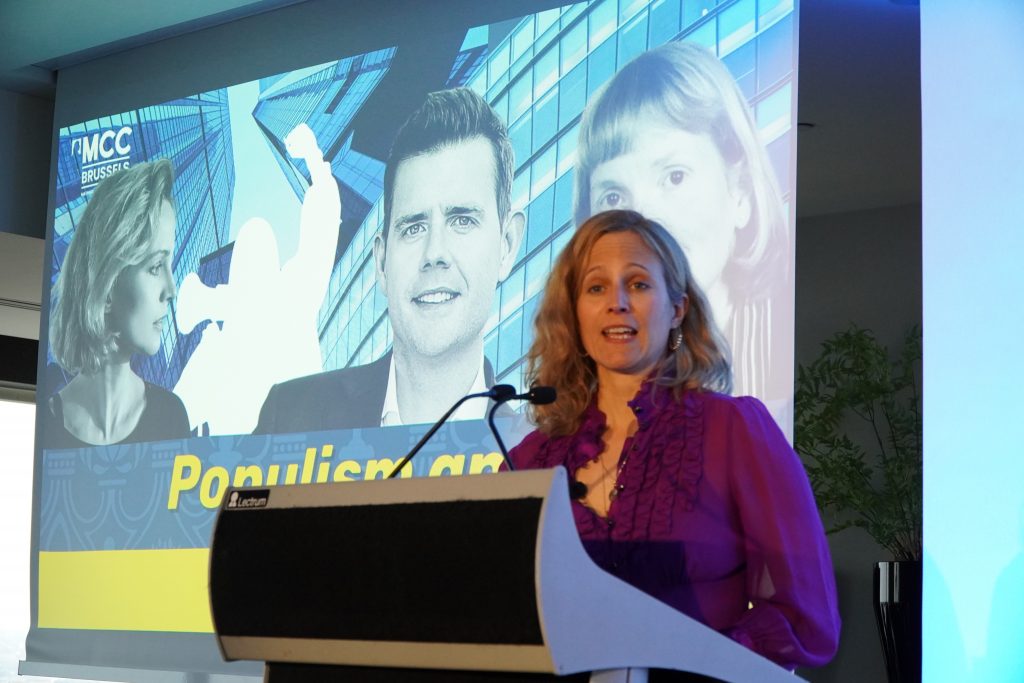
Petra Andits Seal of Excellence Fellow, Free University of Bozen-Bolzano (Source: MCC Brussels Twitter)
Andits mentioned that the fear of the popular movement provokes the militarization of Europe and the hostile environment. This new atmosphere of imminent war is done to create division, as with the conflict between Russia and Ukraine and Israel and Palestine.
With the fact that wars have been used as a mechanism for elite empowerment, for mid-creation, for so many other things and with it you know the whole issue of Ukraine and Israel,”
the university fellow concluded the discussion.


